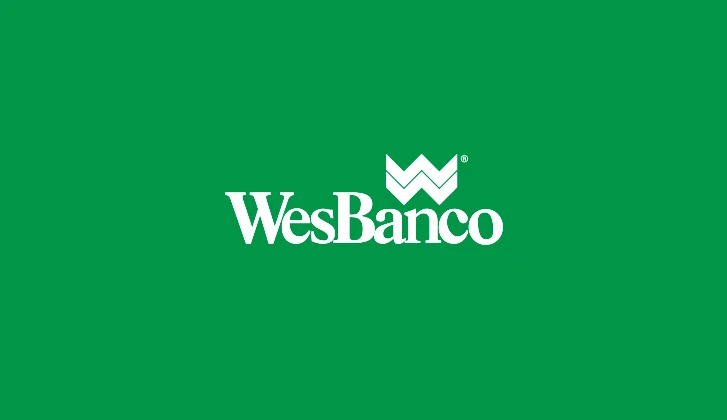NOTICE: Internet Explorer was retired by Microsoft on June 15th, 2022 and is no longer supported. This could change how you access Online Banking.
What Is PMI?

Private mortgage insurance (PMI) is an often-overlooked cost that homeowners may need to pay when buying their new home. Understanding PMI can help you to avoid paying it or saving money in the long term. If you are buying a home with a conventional mortgage or refinancing that loan, you may be required to pay private mortgage insurance (PMI). Here’s what you need to know:
PMI is a fee that you are usually required to pay if you have a conventional mortgage loan and you are unable to put 20% down. You may also need to pay it if you refinance and your equity is less than 20% of the value of your home. PMI protects the lender if you stop making payments on your loan. However, it doesn’t protect you, and you are still at risk of foreclosure if you can’t make your payments. The good news about PMI is that it doesn’t last forever. The key is to build up 20% equity in your home. How long this takes will depend on your mortgage.
How Much Does PMI Cost Me?
PMI can have an annual cost ranging from 0.25% to 2% of the mortgage loan balance, depending upon the size of your down payment, the amount of your loan, the loan term, and your credit score. For example, let’s say that you had a 1% PMI fee on a $200,000 loan. That fee would add approximately $2,000 a year/$167 a month to the cost of your mortgage. Unlike paying your mortgage principal, which goes toward building equity or mortgage interest, which is tax-deductible, PMI is simply a fee that doesn’t provide a return on investment for you.
How Do I Pay for PMI?
While there are several ways to pay your PMI, the most common method is a monthly premium added to your mortgage payment. Some lenders will offer other payment options, including one upfront premium at closing, or paying a portion of that premium at closing and the rest monthly. Review your loan estimate and closing disclosure to get an accurate breakdown of what you’re being charged for PMI.
How Do I Avoid PMI?
The easiest way to avoid PMI is to have a 20% down payment. If that isn’t possible, there may be other types of loans available that don’t require PMI. Some lenders will offer loans with smaller down payments and no PMI, but they are also likely to have a higher interest rate. Whether this type of loan makes sense for you will depend on factors including how long you plan to stay in your home. Because mortgage interest is tax-deductible, talk to your tax advisor when trying to determine which option is right for you.
Other options such as Federal Housing Authority (FHA) loans allow you to avoid PMI while paying less in interest and less upfront. These savings are made possible because the federal government helps guarantee the loans, reducing the risk to the lender. These loans will be dependent on factors, including your credit score, the lender, and market conditions.
Can I Speed Up the Process?
The good news about PMI is that it doesn’t last forever. The key is to build up 20% equity in your home. How long this takes will depend on your mortgage. However, you may be able to get out of PMI sooner.* The trick is to reach the 80% equity level as quickly as possible. There are a few ways to do that.
- Paying Down Your Mortgage Faster
By paying a little bit extra toward your monthly mortgage payment, you can lower your principal, which in turn lowers the amount you need to pay in interest. - Reappraisal
You can get your home reappraised, and if your home value has increased to the point where your balance equals 80% or less of the home’s new value, you can request the lender to cancel the PMI. The reappraisal will cost between $300 and $600, so make sure your home has gained value before you spend the money. - Refinancing
Thinking of refinancing your mortgage? If you do, and the balance of your new mortgage is less than 80% of the home’s current value, you may be able to avoid PMI.
The Tradeoffs and PMI
PMI is an added monthly expense that you can avoid if you save enough to put 20% or more down for a mortgage. While waiting to save that amount can seem tedious, there are additional advantages. If you continue to rent, you won’t be paying insurance, property taxes, or maintenance fees. If you settle for a less expensive home, you’ll save on PMI and a larger mortgage payment.
How Can I Get Help With PMI?
Sometimes, PMI is the only way for a new homebuyer to make their first home purchase. If you have questions about PMI, talk to a WesBanco Mortgage Specialist. We will be able to discuss our loan options that may allow you to avoid PMI, or if you’re currently paying for PMI, we may be able to help you avoid paying it in the future.
* Federal law only provides the right to remove PMI when you request it be cancelled when you reach the date when the principal balance of your mortgage was scheduled to fall to 80% of the original value of your home if you meet certain criteria. Alternatively, PMI will terminate automatically on the date your principal balance is scheduled to reach 78% of the original value of your home if you are current on your payments. Cancelling PMI before either such occurrence is at your lender’s discretion under their own standards and may have an added expense for you.
Content is for informational purposes only and is not intended to provide legal or financial advice. The views and opinions expressed do not necessarily represent the views and opinions of WesBanco.
While we hope you find this content useful, it is only intended to serve as a starting point. Your next step is to speak with a qualified, licensed professional who can provide advice tailored to your individual circumstances. Nothing in this article, nor in any associated resources, should be construed as financial or legal advice. Furthermore, while we have made good faith efforts to ensure that the information presented was correct as of the date the content was prepared, we are unable to guarantee that it remains accurate today.
Neither Strategy Academy nor its sponsoring partners make any warranties or representations as to the accuracy, applicability, completeness, or suitability for any particular purpose of the information contained herein. Strategy Academy and its sponsoring partners expressly disclaim any liability arising from the use or misuse of these materials and, by visiting this site, you agree to release Strategy Academy and its sponsoring partners from any such liability. Do not rely upon the information provided in this content when making decisions regarding financial or legal matters without first consulting with a qualified, licensed professional.
Find a Loan Officer
Find your local Mortgage Loan Officer and you can apply directly with them online or just click “Find one for me” and apply with us online! We make it extremely convenient for you to get started on your Mortgage application.
Find a Loan Officer

